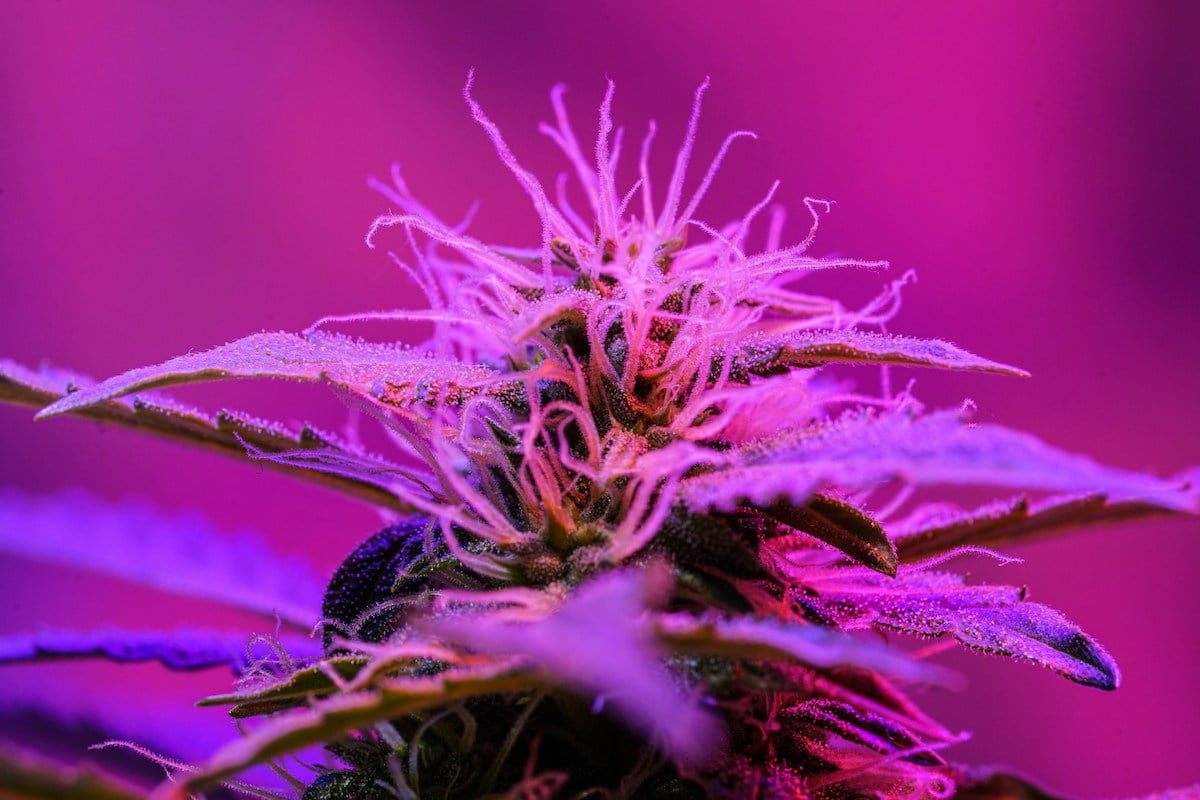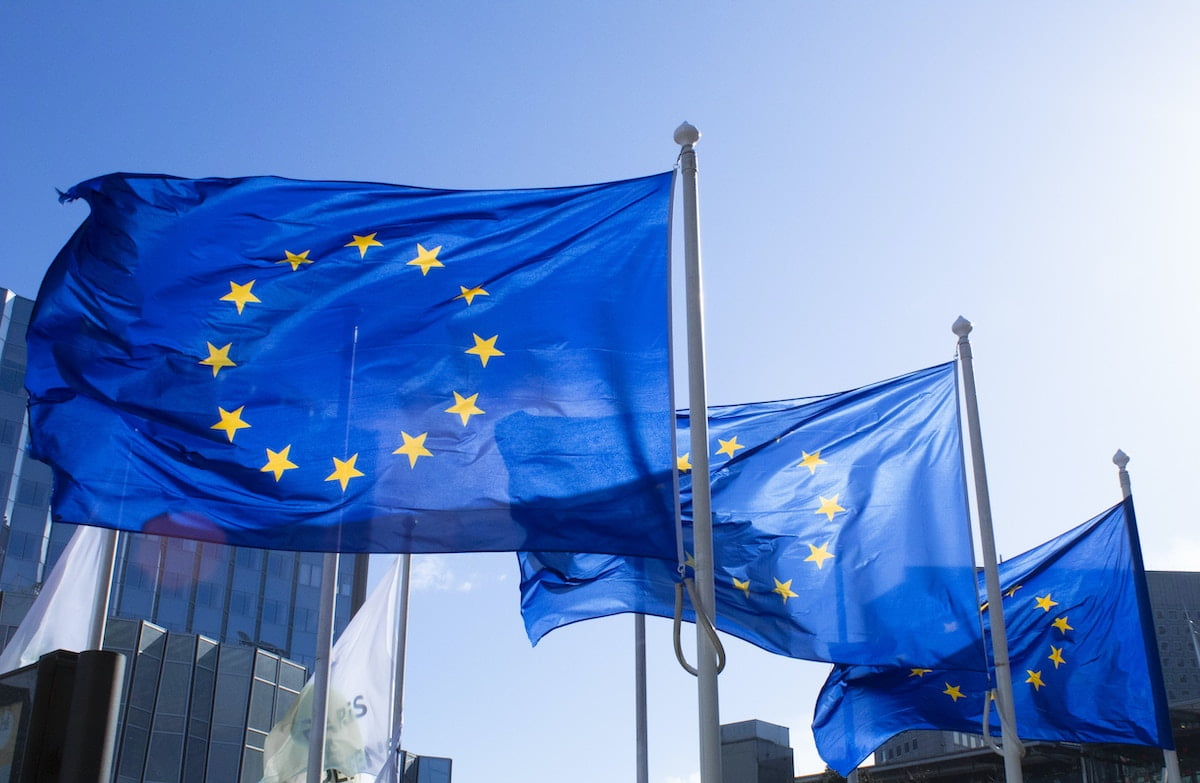An Italian cannabis referendum could potentially lead to the decriminalisation of psychotropic substance cultivation, such as cannabis and mushrooms, for personal use if successful.
The campaign has gained more than half a million signatures supporting the decriminlisation of psychotropic substance cultivation in less than a week, the amount needed to see a potential vote on the referendum.
Focusing on the decriminalisation of cannabis cultivation and removal of sanctions for conduct related to cannabis, the campaign aims to modify the wording of “cultivation” in the Consolidated Law on the Discipline of Narcotic Drugs and Psychotropic Substances in the Presidential Decree 309/1990.
This would not lead to the legalisation of all substances, however, the campaigners say:
“…eliminating the word “cultivate” decriminalizes the cultivation of all narcotic substances. However, this does not mean legalizing all drugs. In fact, the cases of illicit production, manufacture and possession remain and can also be applied to the farmer who produces for the purpose of selling.”
They go on to say: “It is also worth remembering that with the exception of cannabis inflorescences (and mushrooms), all other narcotic substances necessarily require subsequent steps for the substance to be consumed, activities which continue to be punished in Article 73.”
The right to cultivation
The campaign is spearheaded by Forum Droghe, Meglio Legale, Antigone, Luca Coscioni Associations, Società della Reagione, and supported by parties including Volt Italia, Possible, Italian + Europa, and the Communist Refoundation. Its launch follows a proposed referendum launched by Riccardo Magi to decriminalise cannabis cultivation.
Commenting on the campaign, president of the Organising Committee for the Cannabis Referendum, and co-founder and international co-ordinator at Associazione Luca Coscioni (Science for Democracy), Marco Perduca, said: “Associazione Luca Coscioni has been following all drugs-related issues since inception some 20 years ago. It is a splinter group of the only seriously anti-prohibition political party in Italy called Radical Party that, since the mid-60s, has been advocating the decriminalisation or legalisation of all substances. So it came naturally.
“The moment we understood that signatures for a national referendum could be collected online, we put our conviction to the test, and because over the last five, six years, the debate on cannabis in particular, has grown exponentially, especially on social media and among the youngsters, and also in some cultural and musical quarters.
“I think our assumption was correct, because in five days we collected over 500,000 signatures, and, in order to qualify for a ballot next year, we needed the 500,000.”
Perduca, who was a senator in Italy from 2008 to 2013 and expert on UN mechanisms with an emphasis on drug policy reform, continued: “Now the process hasn’t stopped yet, but we are confident, and if the bureaucracy doesn’t slow down, and it doesn’t create obstacles, we’re good to go out on the 30 September to the Cassation Court to submit everything, then the Constitutional Court will have to take a decision in January.
“Our Constitution allows national referenda, provided they don’t touch the Constitution, they don’t touch the fiscal system and they don’t infringe with the ratification of international documents. Because cannabis, like all the other narcotics, is at the centre of an international drug control system, we decided to eliminate sanctions and criminal and administrative sanctions that did not have anything to do with the three UN conventions, so, we are confident that at least on that, there are no problems.
“We know that the jurisprudence of the court in the past has been critical of the so-called manipulation of texts, so that sometimes you take away one word, and the entire architecture of the law crumbles down. We discussed this with jurists and experts in constitutional law, and we believe that this is the minimum that we could prepare, but the maximum in terms of the facts.
“We are, so to speak, liberating any kind of cultivation, but we are not deleting the verbs that are “produce” and “fabricate” which in Italian could mean “manufacturer”, so it would be okay to grow, but the moment in which you transform what you’re growing into something else it will be penalised.
“Now of course, this includes mushrooms and peyote – certainly for personal use, if that is not taken somewhere else and does not become something else – we are creating a new framework. Many of the substances that are in the same scheduling as cannabis have – and we know because of scientific literature that is being developed these days – very efficient and effective therapeutic implications. So, we hope that, by taking away the penalties, we take away the stigma. We have already started several campaigns.”
The Right to Science
Perduca emphasises that the issue spans further than an individuals’ right to cultivate and consume psychotropic substances for personal use, but that these restrictions interfere with the Right to Science.
“We are also now pushing not only to allow people to grow, but also to use, what can be grown without problems for specific scientific research that is targeting specific physical conditions or pathologies because Italy is behind a lot of other countries in this kind of research. We only have one centre at the University of Rome that is starting to study psilocybin for therapeutic purposes. We also grow cannabis for medical reasons, but nobody’s studying it,” says Perduca.
“We hope that after next spring, if all goes well, there is going to be a new scenario, culturally, but also scientifically and then we can keep on insisting on this. So, we are taking away penalties for growing, but it depends on what you grow and how you use them.
“We are now working on something that is called the “Right to Science”, which is a not too well-known right enshrined in the International Covenant on Economic, Social and Cultural Rights, which entered into force in 1976, so it is not a new thing.
“What is new is that the UN at the Committee on Economic, Social and Cultural Rights in April 2020 adopted the general comment on Article 15 of the covenant, which is called General Comment 25 on Science.
“There are three elements of the Right to Science including freedom of research, regardless of the topic research, the sharing of knowledge which is open access, free science, and free and open data are part and parcel of this right, and the last element of the Right to Science is the right to benefit scientific progress and its application.
“The General Comment speaks clearly, it has one paragraph dedicated to cannabis as the example where prohibitionist laws have impeded research on the plant. It says that if you keep on insisting on limiting or prohibiting certain kinds of presences in the scientific sphere, you’re violating the right to science.
“There is another paragraph about the precautionary principle that says that if you have imposed restrictions for a limited amount of time because you fear that a new thing should be regulated in a way in which shouldn’t create harm to humans, animals or the environment, and after five, 10, 20, or in this case we are talking about 60, years – if you have seen that no such harm has been produced, then you have to upgrade or update those laws. In economic circles it’s called the Innovation Principle, here, it is an adjustment to the precautionary principle to the new general situation substantiated by scientific evidences.
“We have a lot of evidence that has been produced by groups like MAPS that has been produced over the last few years on MDMA and also cannabis. You have also other studies that say these substances regulated under the three UN conventions have become a threat because they are prohibited, not because they are dangerous in themselves.
“And so, scientific research for therapeutic uses should be taken into consideration but also statistics and criminology that will tell you that perhaps regulating the presence of these plants in our life in a different way could trigger different scenarios, and if we were to judge from the evidence that is coming from the US states or Canada or Uruguay, where you have contained the phenomenon, you will have to say that this type of evidences will need to be taken into consideration, certainly at the national level but one day possibly also at the international level.”
Associazione Luca Coscioni has a publication coming out next week – The Dose Makes the Poison – which is a collection of presentations and international symposia it has conveyed over the last four years with psychedelic pioneers such as Amanda Feilding, Rick Doblin, Ben Sessa and Carl Hart.
“In order to assist each other, together with the researchers, we are planning on launching a World Coalition for the Right to Science, to frame this according to existing international law, in order to go to the United Nations and show there is a contradiction between what the UN Convention on Drugs says, and the new clarification of the elements of the Right to Science.
“The three UN conventions were adopted to allow access to these plants and to the medicines that can be derived from them. At the same time, a punitive system was created if those plants and substances are not used for medical purposes. Now, the non-medical purposes have taken over in terms of our culture. While there is no problem, at least in my view, to do whatever you want to do, as long as you know what you’re doing and what you’re getting and so, it is a matter of personal responsibility, but it has to be informed decision, of course. But this stigma has percolated into the other domains which are science and medicine. We have to not only separate the two, but possibly make dialogue for the betterment of welfare and wellbeing at the global level.”
Perduca says the coalition should be ready to launch in November, and will be working at a global level not only on drugs but also on other issues such as genome editing, global warming and women’s rights.
ReferendumCannabis thinks the campaign to legalise the cultivation of psychotropic substances in Italy will gain the extra signatures needed to secure reviewal by the house.
Società della Ragione, which attributes the success of the campaign so far to the ability to use digital signatures, describing their use as “a possibility unique for the practice of direct democracy by telematic means”, says that cannabis cultivation is a theme that “crosses justice, public health, safety, business opportunities, scientific research, individual freedoms and, above all, the fight against the mafia.”

 Opinion2 years ago
Opinion2 years ago
 Insight3 years ago
Insight3 years ago
 Medicinal2 years ago
Medicinal2 years ago
 Research2 years ago
Research2 years ago
 Medicinal2 years ago
Medicinal2 years ago
 Markets & Industry1 year ago
Markets & Industry1 year ago
 News3 years ago
News3 years ago
 Medicinal2 years ago
Medicinal2 years ago

















